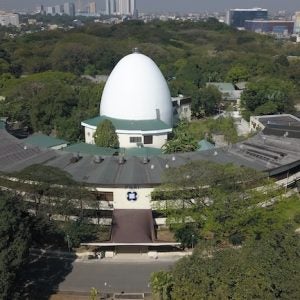 US-based Oklo has completed the second phase of the Thermal Hydraulic Experimental Test Article (THETA) testing campaign in collaboration with the US Argonne National Laboratory (ANL). THETA is a sodium fixture with instrumentation installed at ANL’s Mechanisms Engineer Test Loop (METL) facility.
US-based Oklo has completed the second phase of the Thermal Hydraulic Experimental Test Article (THETA) testing campaign in collaboration with the US Argonne National Laboratory (ANL). THETA is a sodium fixture with instrumentation installed at ANL’s Mechanisms Engineer Test Loop (METL) facility.
Oklo is developing the Aurora microreactor, which uses heat pipes to transport heat from the reactor core to a supercritical carbon dioxide power conversion system to generate electricity. It will use HALEU fuel. Oklo says the reactor builds on the Experimental Breeder Reactor-II (EBR-II) and space reactor legacy. EBR-II features a hexagonal fuel element with a sealed heat pipe and a passive air-cooling system. Oklo initially marketed a 1.5 MWe microreactor version of the Aurora, but has now expanded its capacity offerings from 15 MWe to 100 MWe.
Oklo received a site permit in 2019 from the US Department of Energy (DOE) to build its first Aurora facility at Idaho National Laboratory (INL). In 2020, Oklo submitted a combined licence application to the Nuclear Regulatory Commission (NRC) to build and operate the Aurora microreactor at INL. However, NRC denied the application, citing the company’s failure to provide sufficient design information. A revised application was submitted in September 2022.
The THETA testing campaign at ANL is focused on key thermal-hydraulic behaviour of Oklo’s fast fission reactor design. “A better understanding of key thermal-hydraulic behaviour enables design optimisations while providing high-fidelity data using high-fidelity instrumentation.” Oklo noted. “Ultimately, the THETA testing campaign enables the opportunity to further improve the demonstrated safety and economic potential of bringing Oklo’s fast fission technology to market.”
THETA is a 500-litre liquid sodium facility that is used to develop components and instrumentation as well as acquire experimental data for validation of reactor thermal hydraulic and safety analysis codes. It is installed in one of the 71 cm nominal diameter METL test vessels. The facility can be used to simulate normal conditions as well as a variety of accident conditions characteristic of a liquid metal cooled nuclear reactor.
THETA comprises a traditional primary coolant and secondary coolant system. The primary system is submerged in the pool of sodium and consists of a pump, electrically heated core, intermediate heat exchanger, flowmeter, and connected piping and thermal barriers (redan). The secondary system, located outside of the sodium pool, consists of a pump, flowmeter, sodium to air heat exchanger, and connected piping and valves.
Sophisticated instrumentation such as Rayleigh backscatter based optical fibre temperature sensors and high temperature rated (550°C) electromagnetic flowmeters are being used to characterise THETA thermal hydraulics. The facility was designed in partnership with systems code experts to tailor the experiment to ensure the most relevant and highest quality data for code validation. The THETA primary and secondary systems are both operational and providing experimental data for sodium cooled reactor thermal hydraulic characterisation.
“Argonne’s leadership and technical expertise have been pivotal to THETA’s success, and the completion of the second phase of testing is a huge accomplishment. THETA has and will continue to play a major role in Oklo’s testing endeavours to support our commercialisation plans for our Aurora Powerhouses,” said Patrick Everett, Oklo Deputy Senior Director of Product. Oklo shared costs for the work done at ANL with funding from a DOE Gateway for Accelerated Innovation in Nuclear (GAIN) voucher.
Image: The Thermal Hydraulic Experimental Test Article (THETA) – courtesy of Argonne National Laboratory






